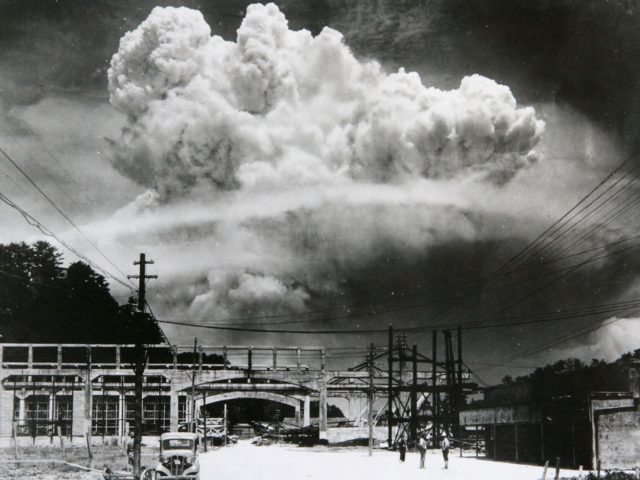ROME — Pope Francis said that the 1945 bombing of the Japanese cities of Hiroshima and Nagasaki arose from a “desire for dominance and destruction” in his message for the 2020 World Day of Peace released Thursday.
“The Hibakusha, the survivors of the atomic bombs dropped on Hiroshima and Nagasaki, are among those who currently keep alive the flame of collective conscience, bearing witness to succeeding generations to the horror of what happened in August 1945 and the unspeakable sufferings that have continued to the present time,” the pontiff said in his message.
In recent weeks, the pope has repeatedly denounced the U.S. bombings of Hiroshima and Nagasaki, labeling them “evil” and “catastrophic” while also calling for an end not only to the use of atomic weapons but also their possession.
Francis has chosen to single out nuclear weapons for his denunciations, never mentioning, for example, the biological and chemical weapons employed by the Imperial Japanese Army to disastrous effect during its invasion and occupation of China during World War II. He has also never referred to other Japanese atrocities and war crimes prior to and during that conflict, notably the Nanking Massacre of 1937 in which Japanese soldiers raped tens of thousands of women and murdered as many as 300,000 civilians and unarmed combatants.
The pope also neglects to mention the reason for America’s entry into the Second World War: namely the preemptive Japanese bombing of Pearl Harbor, whose anniversary was commemorated last week. The United States was a neutral country at the time, having sought to remain so, but after the Japanese aggression Congress declared war on Japan the following day, December 8, 1941.
In his message, the pope instead continues to focus exclusively on Japanese victims and what they suffered at American hands.
“Their testimony awakens and preserves the memory of the victims, so that the conscience of humanity may rise up in the face of every desire for dominance and destruction,” he writes. “We cannot allow present and future generations to lose the memory of what happened here. It is a memory that ensures and encourages the building of a more fair and fraternal future.”
“Like the Hibakusha, many people in today’s world are working to ensure that future generations will preserve the memory of past events, not only in order to prevent the same errors or illusions from recurring, but also to enable memory, as the fruit of experience, to serve as the basis and inspiration for present and future decisions to promote peace,” the pope states.
“War,” Francis contends, “often begins with the inability to accept the diversity of others, which then fosters attitudes of aggrandizement and domination born of selfishness and pride, hatred and the desire to caricature, exclude and even destroy the other.”
“War is fueled by a perversion of relationships, by hegemonic ambitions, by abuses of power, by fear of others and by seeing diversity as an obstacle. And these, in turn, are aggravated by the experience of war,” he declares.
While few would question the pope’s important role in calling the nations of the world to strive for peace, one wonders whether this witness would not be more effective if he were to make an effort to temper his pronounced anti-American animus and occasionally aim his barbs elsewhere.

COMMENTS
Please let us know if you're having issues with commenting.